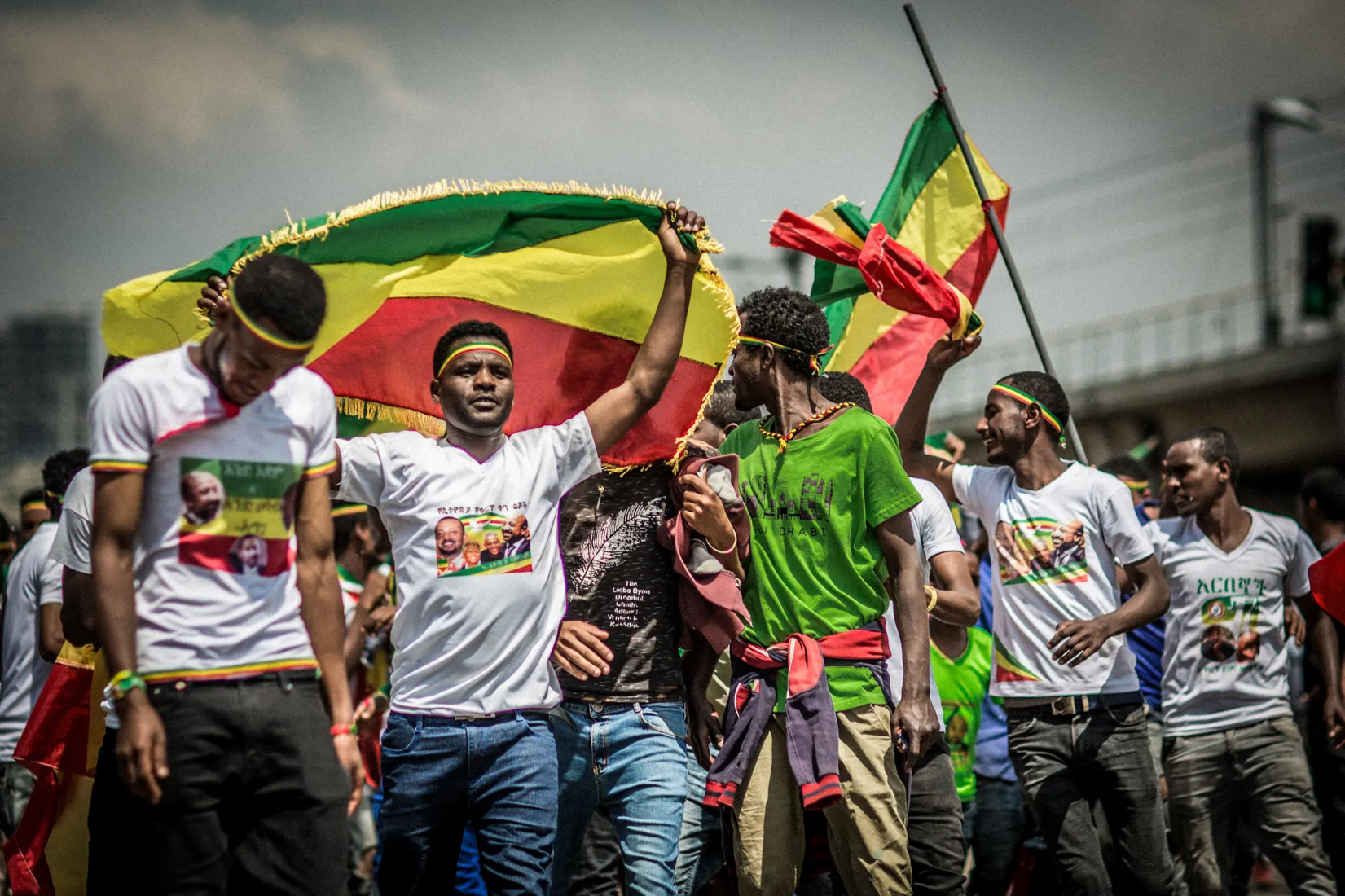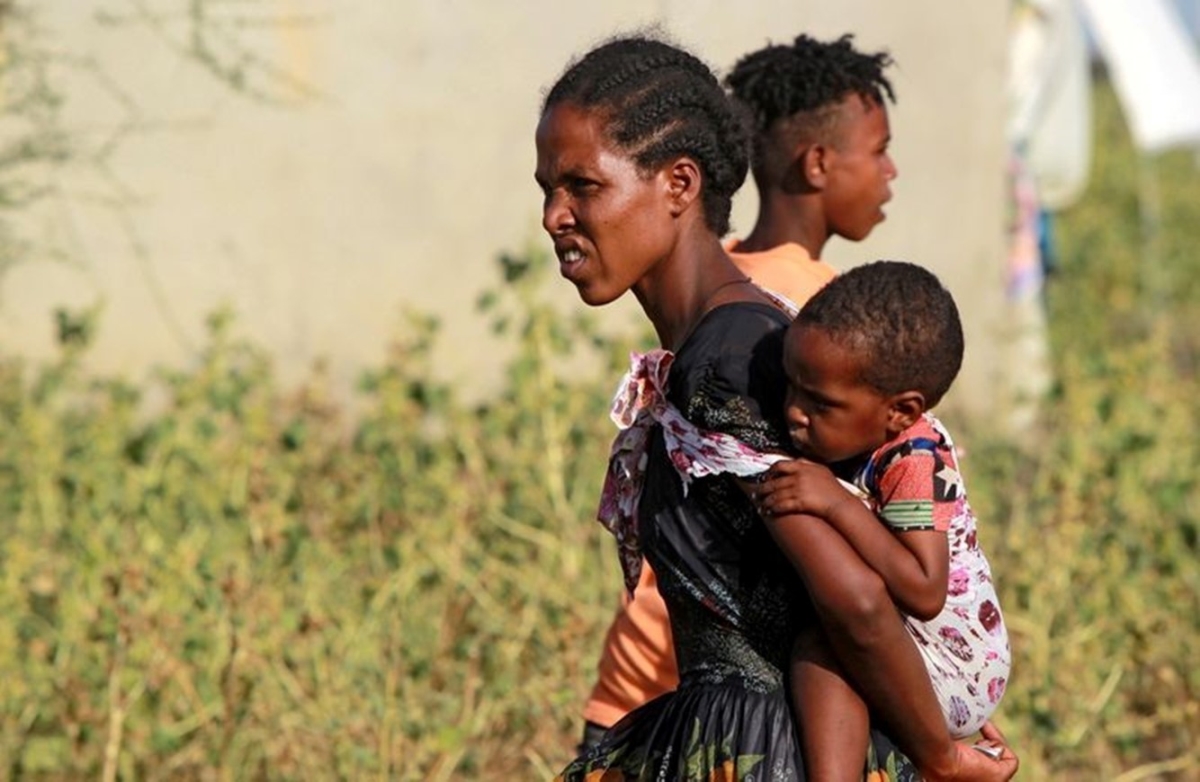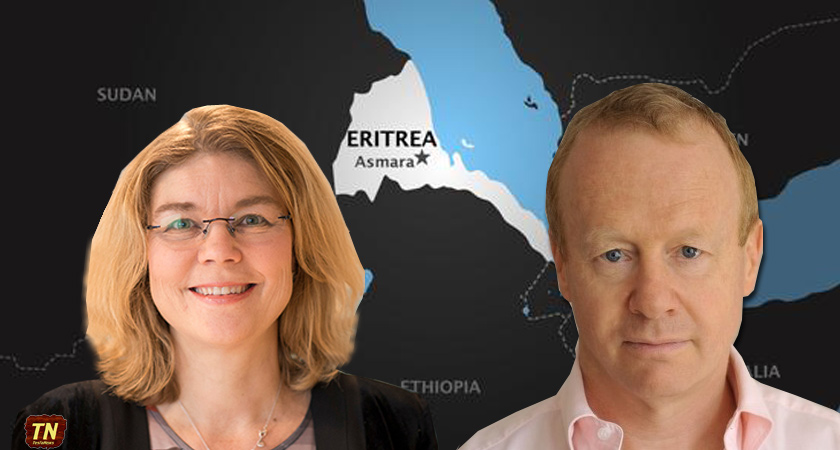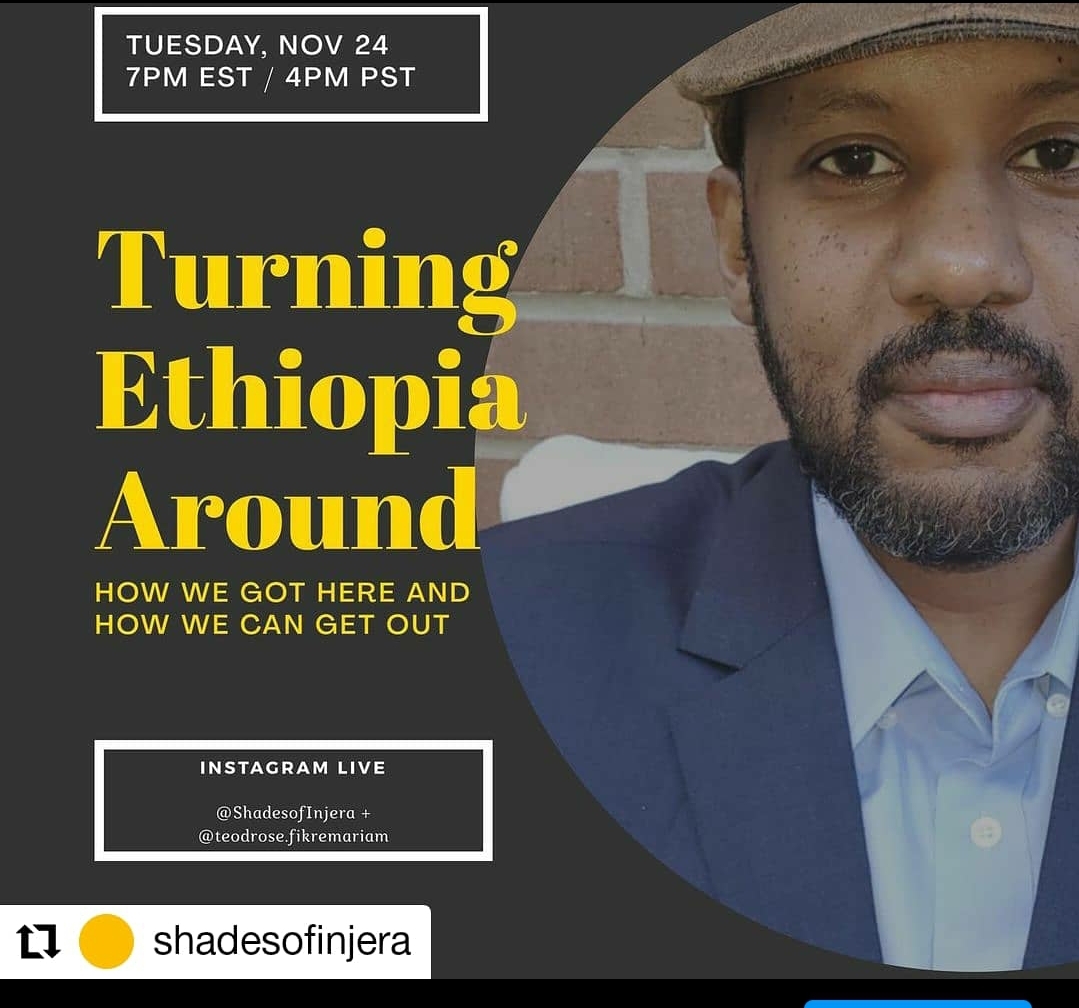
For the past couple of days, I’ve been having a running dialogue with a fellow Ethiopian sister who happens to be Tigrayan. I’ll call her Selam in order to protect her identity. Surprisingly, given the nature of the topic and the passions that this conflict in Ethiopia have aroused on all sides, the conversation was very fruitful. Instead of shouting at each other, we both made our points and I told her why I oppose the TPLF.
After a few DMs back and forth, she agreed that the TPLF were corrupt and were taking advantage of the average Tigrayan and that she actually voted for CUD in 2005. She also noted that she actually voted for CUD in 2005. The old me would have judged her harshly because she supports a junta that brutalized Ethiopians for decades, but now I understand that people who support politicians, parties or ideologies can’t be judged collectively, there are nuances to these things.
She was non-committal with respect to the TPLF until this current conflict changed everything; she went from being a critic to being a fierce supporter in a flash. When people feel attacked, they embrace those who pretend to be defending them. The concept of a “liberation front” is laughable in this way, Africa’s bane of existence are these supposed liberation fronts that are nothing more than front companies for colonial powers who fund and arm them in order to destabilize countries and steal their natural resources.
But these identity based groups, whether TPLF or the Tea Party in America, work precisely because they give voice to a people who feel like they have been rendered voiceless. So it made a lot of sense why Selam immediately backed TPLF when the conflict flared up; the outbreak of violence forced her to choose sides. Remember how George Bush’s approval rating shot up to 90% after 9/11? Heck even I supported him for a brief second after he threw that first pitch in the World Series, such is the power of nationalism in time of war and such is the manipulative potency of media.
I enter the tweet from Martin Plaut, a “journalist” who is really a conflict entrepreneur, where he recklessly states that there is a purge, as in wholesale killings, of Tigrayans in Addis Abeba. Anything for clicks and retweets. Mr. Plaut’s tweet is akin to yelling fire in a crowded movie theater only to then go outside and report on the horrors his inflammatory comment cause. We are being pushed apart and pulled into a thousand different pieces because we keep listening to outsiders with ill intentions and importing the foreign ideologies.
From Marxism to neo-Apartheid, while disregarding our own heritage we keep taking toxic gurshas of others. In all honesty, this trend started a long time ago when we changed our Sendek Alema from three triangles to a square, when we started calling our Sendek Alema bandira, when we started calling each other habesha, when TPLF put the devil’s pentagram on our flag, when we got rid of ranks like dejazmach and fitawrari and started using western ranks like general and lieutenant. When people don’t respect their heritage, they start erasing their history—a people without a history soon perish.
Reports of a relentless purge of #Tigrayans in Addis. Authorities going door to door, searching homes without a warrant. Almost anything can end in arrest and detention. Armed men raid at all hours and people are very scared.
— Martin Plaut (@martinplaut) November 20, 2020
After Selam told me what made her decide to be on the side of the TPLF, what she said next really impacted me. She stated that she too believes in the concept of Ethiopiawinet and that a lot of the Tigrayans she knows are profound patriots who love Ethiopia. The problem, as she noted, was that the Amhara based party highjacked the concept and a lot of the Amhara intellectuals tried to force that slogan down everyone’s throats. Instead of an inclusive Ethiopia, she stated, it became a symbol of exclusion. I did not dismiss her comments, in fact I have been reflecting upon it the whole day. Although I wanted to reflexively push back and try to prove her wrong, I paused and decided to contemplate on her points. This is something I’m trying to learn as I get older, the arrogance of my youth motivated me to win every battle, the wisdom gained through agonizing hardships has taught me to be more circumspect.
There is a reason why her statement about exclusion struck a chord; a lot of Ethiopians in various corners of the country have in fact felt marginalized. Though I vehemently disagree with the notion of “Ahmara privilege”, being born Ahmara is not an express route to a life of comfort, I nonetheless understand why some revert to that line of thinking. Sadly, too many are trying to grab on to the identity based grievance politics of America and importing it to Ethiopia and you see what that wrought us. Truth is that there are millions of Amharas who have and continue to struggle and have been excluded from the country’s wealth for centuries.
The inequalities and marginalization that occurred in Ethiopia were driven more by class than ethnicity; it all boils down to economy and the few who reap much while the rest are sown into a life of insufficiency. However, I don’t dismiss the raw nerves that Oromos, Tigrayans, Somalis and the countless dozens of ethnic groups—I refer to them as communities—feel because their cultures and their heritages have never truly been fully represented and respected. Anyone who dismisses the insults, the otherization and the persecution that were dolled out to various communities throughout Ethiopia’s history is living in a bubble that prevents them from acknowledging these facts.
It was these grievances, the pain of not feeling fully embraced in one’s country, that the TPLF exploited. Ethnic federalism was nothing more than a scheme to sell snake oil to groups that felt oppressed not to heal their wounds but to incite emotions in order to turn brother against brother and neighbor against neighbor. So when people hear Ethiopiawinet, because that term became a political slogan championed mainly by the Amhara political parties, even those who might have otherwise been receptive to the concept of one Ethiopia instead turn away and withdraw into a defensive posture.
This is the trap of ethnic federalism and identity driven campaigns. It was a scheme foisted upon Ethiopia by TPLF in order to divide and conquer us, an insidious program imported from the South African National Party, the TPLF introduced Apartheid in Ethiopia by way of ethnic homelands and parties based on tribe. [bctt tweet=”Political parties based on ethnicity and causes rooted in color, gender, religion or ideology end up creating friction with other out-groups and prevent a consensus from materializing. ” username=”teodrosefikre”] This is why billionaires fund all kinds of social movements, their aim is to fracture society based on identity and Balkanize nations along tribal lines. The 1% don’t invest their capital in people, they are either trolling the planet for profit or exploiting marginalized people to keep them perpetually divided and distracted.
What is taking place in Ethiopia at this moment is tribalism on steroids; when one ethnic party espouses an idea, it gets push back from the other ethnic groups not on the merit of the ideas but based solely on the fact that it was pushed by an ethnic party. Ironically, the Amhara political parties, who championed Ethiopiawinet the most, have abandoned that noble idea and instead latched on to Amhara-centric rants, after battling TPLF for years and pushing back against ethnic federalism, they lost the war the minute they embraced Amhara grievance politics at the cost of Ethiopiawinet.
How can one rightly condemn ethnocentrism for the poison that it is and then turn around and embrace ethnocentrism is baffling to say the least. Let me not judge too harshly though, they clung to Amharaism the same reason why Selam decided to endorse TPLF; people turn inward and grab on to their identity the most when they feel hopeless. Moreover the vicious campaigns of terror that have been waged on Amharas in Ethiopia have disillusioned the most die-hard nationalists and given rise to sectarianism.
God willing, the conflict in Tigray will come to an end sooner than later and that is when the hard work of rebuilding a fractured Ethiopia begins. Somehow, we need to abolish ethnic federalism, but it can’t be done by fiat nor by force but through conversations like Selam and I had. We really need to abandon this “winner take all” posture because you see where that path is leading us. Beyond that, the concept of Ethiopiawinet needs to stop being political and instead be a social movement that is built on the foundation of inclusion.
That means listening to people who feel hurt so that they can feel heard. Increasing one’s decibels will not solve problems it only makes people dig in their heels which eventually lead to the digging of graves. Furthermore it’s embarrassing when we air our dirty laundry on social media and advertise to the world how unruly we are. The time of acting like children must come to an end—now is the time to grow up.
I’ll wrap it up with a text I received from a very respected Ethiopian advocate in the DC area; she encouraged me to keep doing what I am doing and in the end she said, and I paraphrase, that her generation has messed things up and that Ethiopians from the 60’s need to give way to the new generation of Ethiopians. While I understand where she is coming from, I don’t necessarily agree with her premise.
True enough people who experienced the horrors of the Derg and grew up prior to Mengistu have been dominating the conversation and monopolizing the stage for decades, but the truth is that we are all saddled with baggage irrespective of our age. Elders scared by wars, the new generation tainted by zeregnenet (tribalism), no one has escaped the touch of trauma in our community.
For those reading this article who are not Ethiopian and especially to those who are avid readers of the Ghion Journal, I know that I’ve been focusing a lot on Ethiopia, that’s because my birthland is going through dark times and I feel compelled to shed light on a situation that is causing such scale of suffering in the land that raised me. However, if you read all the articles I write, there is a common theme that is just as relevant in America and beyond.
The wistful melodies I’m humming about Ethiopia are the soundtracks of America, the same way identity politics is wielded to split people apart, the same way grievance has been weaponized and the same way strife is manufactured by politicians and pundits alike, these things are happening here too. Ethiopia is a canary in a coalmine of what is coming for America.
What Ethiopia needs more than anything else is intergenerational healing. The way to arrive at healing is not by way of myopic political parties nor slogans, we need to mend within first and then really start having dialogues on ways to create an inclusive Ethiopia. We need to work together for an Ethiopia where the wealth is shared by all, one where opportunity does not take into account one’s ethnicity and one where our governance is centered on ideas instead of ideologies.
This is the Ethiopiawinet we need, but for that to happen, we need to focus on forming a common identity while respecting and embracing our cultural differences. Unity is possible but unity should not be confused with conformity. After all, you can’t have unity without U n I, so lets You and I join hands and redouble our efforts to mend our country so that we can restore hope to our people back home and the millions who live around the world.


